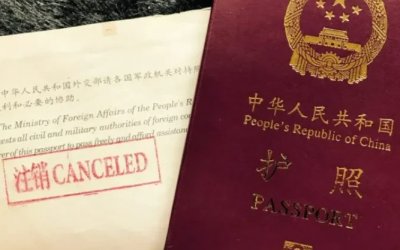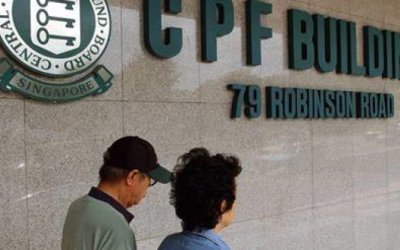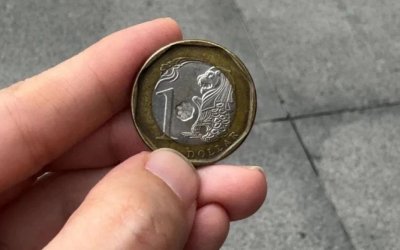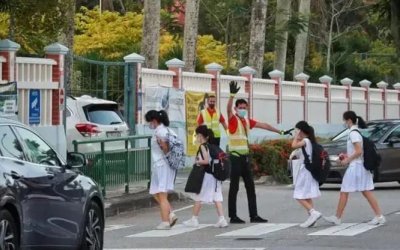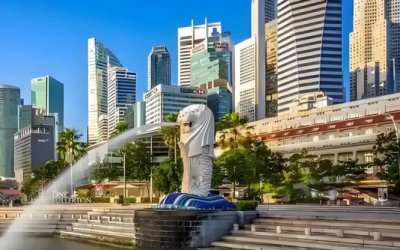即使在更大層面的政策上,西方也有和新加坡類似的例子。喬治·凱林和詹姆斯·Q·威爾遜於1982年發表了一篇名為《破窗效應》的文章,認為一扇破掉的窗戶「就意味著沒人在乎它,所以打破更多窗戶也就不會有任何後果了」。從中得出的教訓是:千里之堤,毀於蟻穴,所以一定要在事態擴大之前,用嚴厲的手段把小問題消滅在萌芽狀態。紐約前市長魯迪·朱利安尼稱自己正是用這種方法降低了紐約的犯罪率,這聽起來和新加坡也有點像。
Do fines work?
罰款有用嗎?
At first, the policy worked, according to Liak Teng Lit, chairman of the National Environment Agency. A combination of public awareness campaigning and punitive measures made a difference. More people picked up after themselves. The city became cleaner.
一開始是有用的,新加坡國家環境局主席陸聖烈如是說。旨在喚醒公共意識的運動和處罰措施相結合,的確帶來了改變。越來越多的人開始養成物歸原位、井井有條的好習慣,城市也變得乾淨了。
In 1961, Singapore had a 「broom brigade」 of 7,000 day labourers who were directly employed by the department of health. By 1989, there were only 2,100.
1961年,新加坡建立了一支「清掃隊」,由衛生部直接僱傭了7000名工人來做臨時工。到1989年,這個數字已經降到了2100。
day labourer: an unskilled worker hired and paid by the day 按日計酬的臨時工
But things changed. The city became wealthier, and it became easier to use low-cost labour to clean up. Nowadays, says Liak, Singapore isn』t clean because locals fear fines. It’s clean because there’s an army of workers scrubbing it. They do the heavy lifting. More than anyone else, they keep Singapore clean.
但後來情況發生了變化。這座城市變得更為富裕,也更容易僱傭廉價勞工來清潔打掃了。陸聖烈說,今天的新加坡之所以能幹乾淨凈,並不是因為人們害怕罰款,而是因為有一大波工人在仔細打掃,是他們承擔了運送垃圾的重任。這些人對城市清潔做出的貢獻,比其他所有的人都要大。
「Singapore is a not a clean city. It’s a cleaned city,」 Liak declares.
「新加坡不是一座乾淨的城市,而是一座打掃過的城市。」—— 陸聖烈
There are 56,000 cleaners registered with the National Environment Agency. There are likely thousands of independent contractors who aren』t registered. Mostly they』re low-paid foreign workers or elderly workers. Taipei, by contrast, has maybe 5,000 cleaners, Liak adds.
國家環境局註冊在案的清潔工有56000個,沒有登記的獨立承包人估計也有幾千個。他們大多是低薪僱傭的外國勞工或上了年紀的工人。「但台北只有大概5000個清潔工。」陸聖烈補充說。
Edward D』Silva is frustrated about the way the rise of this army of cleaners has changed the culture in Singapore. With so many cleaners, Singaporeans came to regard cleaning up as someone else’s job. Today, Singaporeans often leave their tray on the table at hawker centres after eating a meal, because they don』t consider it littering, or they think it’s the cleaners』 job to clean up after them. (In fairness, tray return facilities were only installed in 2013.)
清潔工人數量的增加已經改變了新加坡的城市文化,愛德華·德西爾瓦對此很是懊惱。因為有這麼多清潔工,新加坡人開始把打掃看成別人的事了。如今,新加坡人經常在吃完飯後把餐盤留在小販中心的桌子上,因為他們不認為這是亂扔垃圾,或者他們覺得收桌子是清潔工的事。(說句公道話,餐盤迴收裝置直到2013年才開始普及。)
D』Silva says students don』t pick up after themselves either, because they』ve always had a cleaner to do it for them. It’s something the Public Hygiene Council is trying to address at local schools. Simply put, he thinks Singaporeans have had it too easy for too long, and they need to change. Liak agrees.
德西爾瓦說,就連學生也不會自己收拾桌子了,因為總有清潔工在後面幫他們收垃圾。這也是公共衛生理事會在當地學校教育中試圖改善的一點。簡單來說,他認為新加坡人的舒服日子過得太久了,需要做出改變。陸聖烈也同意這一點。
「The government cleans the apartment [building], right up to your corridor, typically twice a day. When you have a very efficient cleaning service, and your neighbour messes up the place, you don』 t blame the neighbour, you blame the cleaner for not picking it up,」 he says.
「政府會打掃公寓樓,一直掃到你家門口,而且是一天掃兩次。如果有這樣高效的清潔服務,即使鄰居把樓道弄髒了,你也不會怪他們,反而會責怪清潔工沒有及時來打掃。」他說。
Changing behaviour
改變行為
In Japan, Australia or the UK, there isn』t the same availability of very low-cost labour to take on the cleaning jobs. In Singapore, cleaners are mostly drawn from a pool of roughly a million foreign workers as well as local aged workers. But as Singapore’s population grows and labour becomes more expensive, it simply won』t be affordable to employ so many cleaners.
在日本、澳大利亞和英國,沒有同等廉價的勞動力可以承擔清潔工作。而在新加坡,清潔工大多是從約一百萬外國勞工和本地大齡工人中挑選出來的。但隨著新加坡人口的增長和勞動力成本的上升,政府也承擔不起如此多工人的僱傭費用了。
Edward D』Silva says part of the original push for a cleaner Singapore was economic. Cleaning public spaces is expensive and it takes money away from more valuable pursuits. He says that’s still the case, and Singapore needs to change its behaviour fast. Singapore spends at least SGD$120m (US$87m) a year on cleaning public spaces.
愛德華·德西爾瓦說,在起初推動新加坡成為清潔城市的改革中,部分是出於經濟原因。公共場所的清掃工作耗資不菲,而這些錢本可以用來達成更有價值的目標。他說這一情況至今仍未改變,新加坡需要迅速做出改變。現在政府清掃公共空間的花費一年至少有1.2億新幣(摺合8700萬美元)。
「If you are able to instill and cultivate a habit whereby people don』t throw their litter anywhere and anyhow, then the money you would have otherwise spent to employ those cleaners, well, millions of dollars could have been better spent on health and education,」 he said.
「如果你能激發並培養人們不亂扔垃圾的習慣,也就不需要僱傭那麼多的清潔工,那用省下來的幾百萬推動健康和教育不是更好嗎。」德西爾瓦這樣說。
Cleaning up
清掃進行時
Lee Bee Wah is the local MP for Nee Soon. She’s at the clean-up day in Khatib. In fact, she attends at least one a month in her constituency. She’s passionate about cleaning up. She not only encourages her constituents to pick up litter when they see it, but also to speak up when they see someone littering and to report offenders to the authorities.
李碧華是新加坡義順的地方議員,她也參與了卡迪社區的清掃日活動。事實上,她在自己的選區每個月至少要參加一次這樣的活動。她對清潔工作熱情滿滿,不僅鼓勵本區的選民隨手撿拾路上的垃圾,看到有人亂丟垃圾也會出言勸阻,並將其告到有關當局。
constituency /kənˈstɪtʃuənsi/ n. the body of voters who elect a representative for their area (選舉國會議員的)選區; 選區的全體選民
She says public education is every bit as important as fines. In fact, it’s quite difficult to impose fines, because it often requires an official or at least a citizen to witness the offence.
她認為,公共教育和罰款條例的重要性是旗鼓相當的。實際上,落實罰款條例非常困難,因為這往往需要一個官員或至少一個市民作為犯罪目擊者。
「It is better to convince them, to get them to buy in, rather than just to depend on fines,」 she says.




